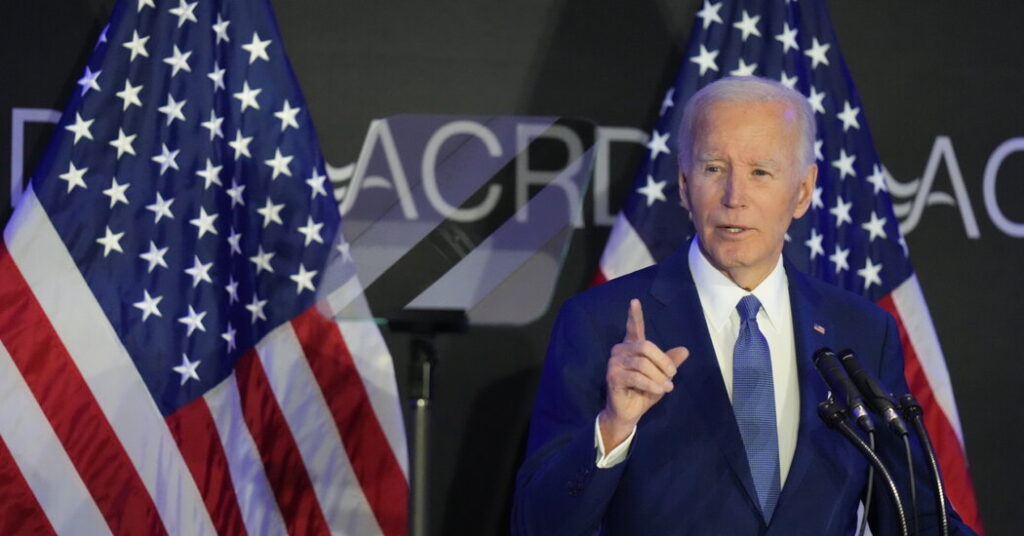Former President Joesph Biden has what a spokesman described as a “small nodule” in his prostate. How worried a patient should be by such a finding depends on the circumstances, urologists said.
In some cases, nodules are caused by inflammation, which can make the prostate feel firmer, or can lead to calcifications in the prostate that feel like nodules. These are benign.
They can also result from a common condition in older men, nodular benign prostatic hypertrophy, in which nonthreatening nodules form in the prostate, enlarging it. These also pose no risk.
But in the worst cases, they can be cancers.
When a urologist feels a nodule in a man’s prostate, it is not always clear what to make of it, said Dr. Scott Eggener, a urologist at the University of Chicago.
“There absolutely are times when it is vague and equivocal and you don’t know what it is,” he said, adding that a growth may feel like “a big bulky rock that is almost certainly cancer.”
But, Dr. Eggener said, he wonders why a doctor was manually examining Mr. Biden’s prostate in the first place. Perhaps he had a new symptom, like a urinary issue, or pain, or an elevated level of prostate-specific antigen, or PSA, a blood protein whose level rises with prostate cancer.
If the exam was just part of routine screening, it would be contrary to guidelines issued by professional organizations that argue against prostate screening for men Mr. Biden’s age, unless they are in unusually good health.
That is because prostate cancers tend to grow slowly, if at all, and are very common in men Mr. Biden’s age, Dr. Eggener said.
“At least 50 percent of men his age have cancer in their prostate,” Dr. Eggener said. “The overwhelming majority are better off not knowing about it.” They may die with the slow-growing cancer, not of it. They may have no symptoms and it may not threaten their lives.
Screening for a man Mr. Biden’s age is “very controversial,” said Dr. Judd Moul, a urologist at Duke University.
He’s been screened, though, so “I guess at this point it’s water under the bridge,” Dr. Moul said. “Someone did a digital rectal exam and found something they deemed as abnormal.”
Now the issue will be how to evaluate the finding.
One usual method would be to do a PSA test. Alternatively, he could have a new urine test that looks for genetic signals of cancer.
Doctors could examine Mr. Biden’s prostate with an MRI, or ultrasound.
“Ultimately, if they think this nodule is prostate cancer, the final step would be a biopsy,” Dr. Moul said.
And then, if it is cancer, Mr. Biden would face the difficult decision of whether or not to have it treated, which might require surgery or radiation.
“Sometimes when we are faced with older gentlemen with prostate nodules and other health issues, it can be appropriate just to monitor it,” Dr. Moul said.
Dr. Moul said that before he went down the path of further testing, he would first have a long talk with a patient like Mr. Biden about what that might lead to. If a patient finds out he has prostate cancer, he has to decide whether to undergo the treatment, which can be difficult, or live with the knowledge that he has cancer and that he is choosing not to treat it.
“I would try to make a shared decision with him before moving on to any further testing,” Dr. Moul said.
Mr. Biden’s spokesman said he had spent Friday at a Philadelphia hospital and was undergoing additional evaluation.


